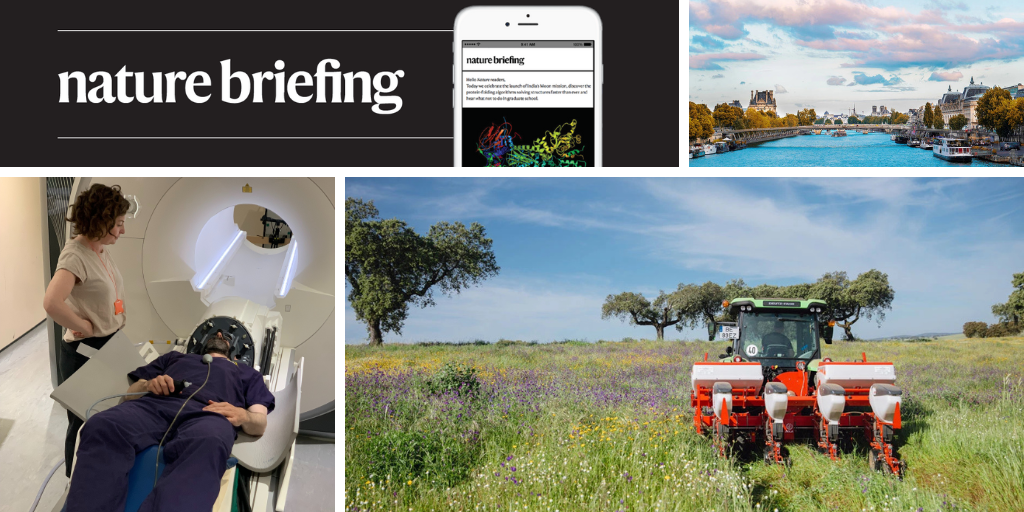
"Researchers have developed a prototype ultrasound 'helmet' that non-invasively delivers mechanical pulses deep into the brain, offering an alternative to invasive deep-brain stimulation for disorders such as Parkinson's, Alzheimer's and depression. In a test on seven volunteers, the device was able to target an area the size of a grain of rice, with lasting impact on brain activity afterwards. Neuroscientist Elsa Fouragnan says this proof of concept "represents a fundamental neuroscience milestone that opens the way for clinical translation"."
"A vaccine against chlamydia has been approved for koalas (Phascolarctos cinereus) in Australia. The disease causes debilitating blindness and infertility, further harming a species diminished by habitat loss, wildfires and road collisions. The vaccine "offers three levels of protection - reducing infection, preventing progression to clinical disease and, in some cases, reversing existing symptoms", says microbiologist Peter Timms, who led the team that developed the jab. Rolling out a vaccine to wild animals is not trivial, and researchers are calling for government funding to help deliver it to at-risk koala populations."
"As the appeal of the United States dims for international students pursuing graduate studies, other countries are jumping at the chance to host them. Canada, France, Germany, Spain, South Korea, China and Hong Kong are among the nations where new initiatives aim to entice would-be PhD students."
Farms across Europe are adopting regenerative agriculture practices to protect crops and soils from climate-change-driven extremes and to enhance long-term resilience. Researchers prototyped an ultrasound 'helmet' that non-invasively delivers focused mechanical pulses deep into the brain, successfully targeting a rice-grain-sized region in seven volunteers and producing lasting changes in neural activity. A chlamydia vaccine approved for koalas reduces infection, prevents disease progression and can reverse symptoms in some cases, though logistical challenges remain for vaccinating wild populations and government support is needed. Several countries are launching initiatives to attract international PhD students as interest in the United States wanes.
#regenerative-agriculture #non-invasive-brain-stimulation #koala-chlamydia-vaccine #international-phd-mobility
Read at Nature
Unable to calculate read time
Collection
[
|
...
]